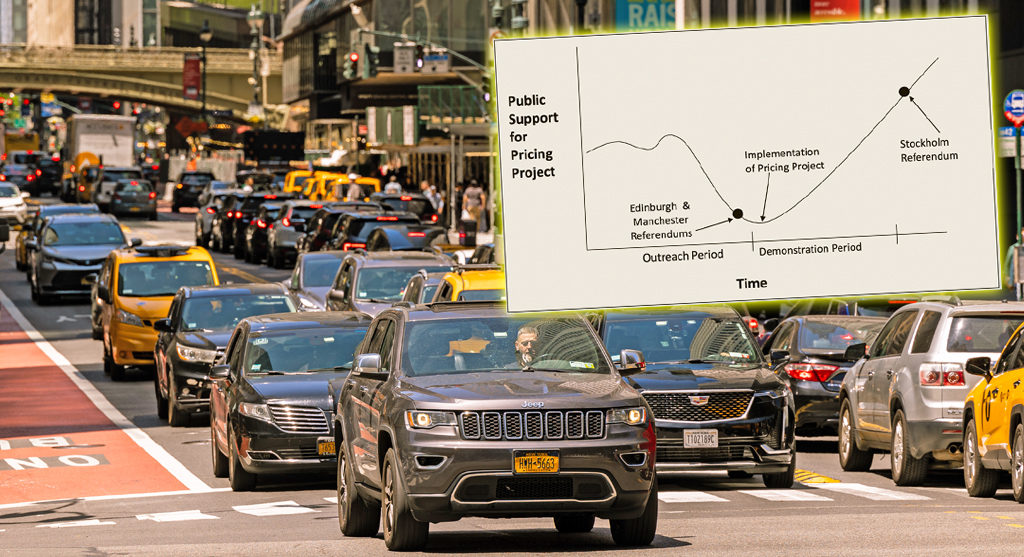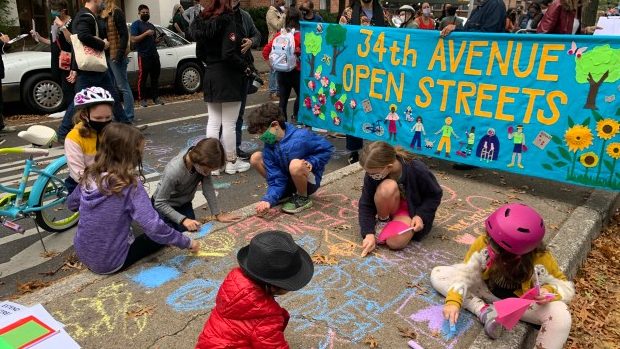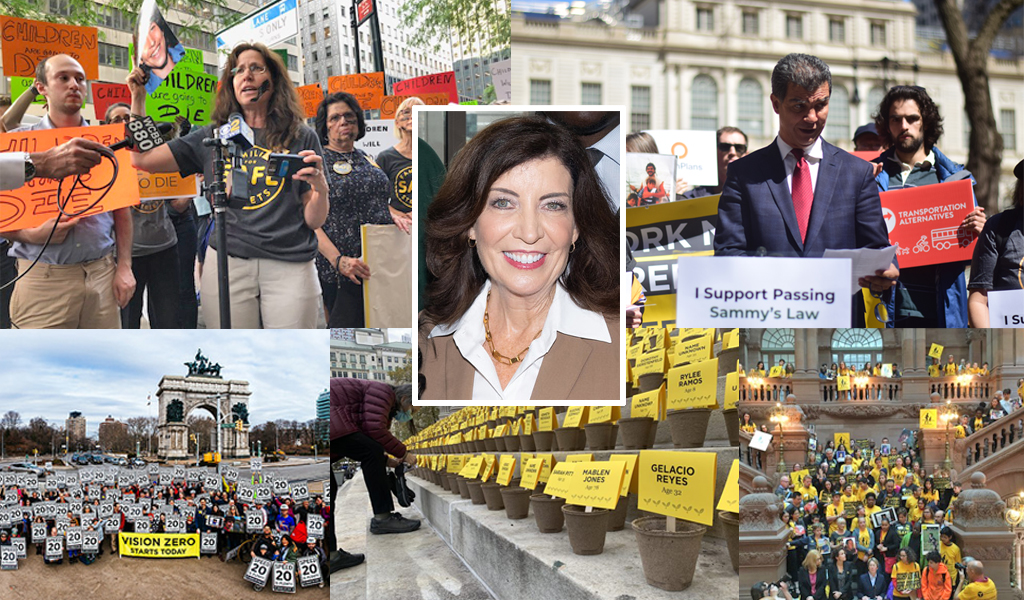Planning Experts Call for an Overhaul of NYC Zoning Rules
11:28 AM EDT on October 18, 2011

New York City's zoning regulation turns 50 this year. Though the zoning ordinance has been amended extensively over the last half-century, land use in New York is still governed under a basic framework established under Mayor Robert Wagner. In a panel discussion held last Friday by the Municipal Art Society, experts put forward a vision for a brand new planning paradigm for New York City. The panelists called for fewer restrictions on how buildings are used, a merging of the city's various land use codes, and a shift toward strategic planning.
Last week's panel focused on the underlying structure of the zoning code rather than particular provisions. Rather than discussing the city's many downzonings near transit or its parking minimums, each of which promote automobile use and increase the cost of housing, participants talked about the overarching principles that should govern land use regulation.
Each of the panelists endorsed a move toward what moderator Vicki Been, a professor at the NYU Law School, called the "Vegas principle" of zoning: "What happens in the building, stays in the building." Zoning, they argued, should be more concerned with how buildings meet the public realm or impact public infrastructure than what people choose to do inside their property. "There's nothing unsafe about having a business on the same floor as an apartment, if the people in the building agree to it," said Michael Kwartler, a national expert on planning who helped write the zoning laws for midtown Manhattan.
When asked what she would change in the city's zoning code, Jerilyn Perine, the head of the Citizens Housing and Planning Council and a former city housing commissioner, said "the word 'family' should be eradicated from the zoning resolution." The definition of 'family' currently used in the zoning code limits the number of unrelated individuals who can legally share a single unit. The code "dictates not only how many people but who lives in places," said Perine.
The desire to deregulate the use of buildings doesn't mean that the MAS panelists were leaping to the New Urbanist solution of form-based codes, which can regulate the design of buildings as strictly as conventional zoning regulates use. The form-based code for the area around the Bay Area's Pleasant Hill BART station, put forward by the Form Based Code Institute as a model, requires all buildings to be between two and four stories and for half of all upper-story units to include a balcony. "Figure out what elements of form really matter," urged Don Elliott, the co-author of The Citizen's Guide to Planning. "A lot of the details: it doesn't matter, despite what the architects say."
Kwartler and Perine, too, warned against over-regulating urban form, and especially against the current planning vogue for "contextual zoning," which has been a hallmark of the Department of City Planning under Amanda Burden. "I hate this idea of contextual, this idea that what's there should dictate what could be there in the future," said Perine. Kwartler added that the Empire State Building is out of context with its surroundings, to the benefit of the entire city.
Panelists also called for reforming the city and state environmental review processes. "It's reactive rather than planning," said Been, who called environmental review "one thing we know is broken." The panelists suggested that to the extent possible, environmental regulations and land use regulations ought to be unified rather than left as separate legal regimes. In Duluth, Minnesota, said Elliott, the city sat down with state environmental officials to determine what land use patterns could guarantee compliance with stormwater runoff regulations. They then wrote those patterns into the zoning code, eliminating one procedural hurdle for developers.
"Blend all of the regulations that deal with a piece of land into one code," agreed Kwartler, citing overlapping environmental, zoning, building and preservation codes. Those regulations can sometimes work at cross-purposes, he said, and often create redundant and costly review processes.
Ideally, that unified code would come out of comprehensive planning processes that develop an integrated vision for the future of a neighborhood. New York City does not do comprehensive planning, making it an outlier among municipalities. Under the Bloomberg administration, PlaNYC is meant to serve as a "strategic plan," setting priorities for the city, but since it is not site-specific, it doesn't always help the city balance competing priorities. Mitchell Silver, the planning director for Raleigh, North Carolina and president of the American Planning Association, said that rewriting Raleigh's comprehensive plan made rezoning the city easier and more effective. "We understand what we're solving and what we're coding for."
Instead of the often-ineffective public outreach done at the end of each legal review, said Elliott, developing a comprehensive plan would also let the public engage at the beginning, when input can be both more constructive and more impactful than in the current process, which Kwartler called “public hearings as public screamings.”
The positions presented on Friday represent only a sample of the competing visions for the city's planning process, others of which were put forward at a MAS conference held last year. These big ideas notwithstanding, however, there is no indication that the city is considering starting over with a new system of land use regulation, rather than continuing to rewrite the city's zoning one neighborhood at a time.
Stay in touch
Sign up for our free newsletter
More from Streetsblog New York City
Tuesday’s Headlines: Valley of Political Death Edition
Did you see the new poll showing congestion pricing is really unpopular? Ignore it! Good times are coming. Plus other news in today's headlines.
Open Streets Groups Warn of Extra Red Tape to Run Events
Two weeks notice for hopscotch or a yoga class?
Monday’s Headlines: A Federal Case over Parking Edition
We're flicking our bicycle bell over a big scoop last week that no one picked up on...yet. Plus other news.
Hochul, Legislators Reach Toll Evasion Crackdown Deal
Higher fines for covering a plate and for not paying tolls are part of the budget deal inked on Saturday.
Behind the Scenes: How Gov. Hochul Got ‘Sammy’s Law’ Over the Finish Line
Opponents didn't want to put their name on a no vote for the life-saving measure.




